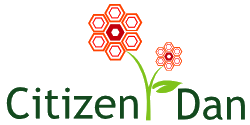 Structured Dynamics just released the Citizen DAN demo. This is the sum of nearly two years of efforts in developing different pieces of technologies such as structWSF, conStruct, irON and Semantic Components. Citizen DAN is the first OSF (Open Semantic Framework) instance.
Structured Dynamics just released the Citizen DAN demo. This is the sum of nearly two years of efforts in developing different pieces of technologies such as structWSF, conStruct, irON and Semantic Components. Citizen DAN is the first OSF (Open Semantic Framework) instance.
This demo shows how we managed to get a subset of the US Census data related to the Iowa Metropolitain area, how we created a small ontology to describe its instance records, and how they got managed, displayed, browsable and searchable by using the complete tools stack we created for other purposes. All pieces have been integrated together around this Citizen DAN demo that Mike gave at SemTech 2010. We are now releasing a publicly accessible instance of this demo.
I am really proud of what we accomplished so far with the very little resources we are working with since two years. Even if we got nothing from our Knight News Challenge application, we were convinced that Citizen DAN was an important project to build and release for local communities. This is an important open source project geared to help local governments and communities to create value out of the data they own and to publish it in meaningful ways on the Web. It is why we used our small resources to create Citizen DAN. We managed to bootstrap ourselves even more, and we managed to get some early clients interested in investing resources in this project.
It is not just about Citizen DAN
Citizen DAN is one kind of OSF instance. However, OSF can have multiple incarnations. The framework is geared so that any kind of data can be indexed, managed and published by this same framework. We can think of usecases in the financial, consumer and business sectors just to name a few.
Next steps
In the near future, we will release new and updated tools and services; we will add value to the framework. We will create new online services, in other sectors, that also leverage OSF.
What about documentation?
More and more documentation will be written on the TechWiki. We are committed to one thing going forward: documentation as we go; to make sure that our clients doesn’t require us to maintain their instances.
Is there a supporting community?
We will also work hard to develop the community around all pieces of OSF. We already have some active members in the community. Some of them will start committing new code and tools; and writing new documentation on the TechWiki. We are expecting to see a significant growth in the community for the next year.
Each thing that get committed by any members of the community will benefits all other members. So far, all our clients committed the result of their work to the project, because they know that this small investment would worth much more as the community grows by getting freebees from our other clients, and other members committing resources into the development of any OSF piece.
The places to start with the community is on the OpenStructs Community web site, and the OSF Mailing List.
Conclusion
This is just the beginning.
I would encourage your to read Mike’s blog post about this new release to have more background information on OSF.